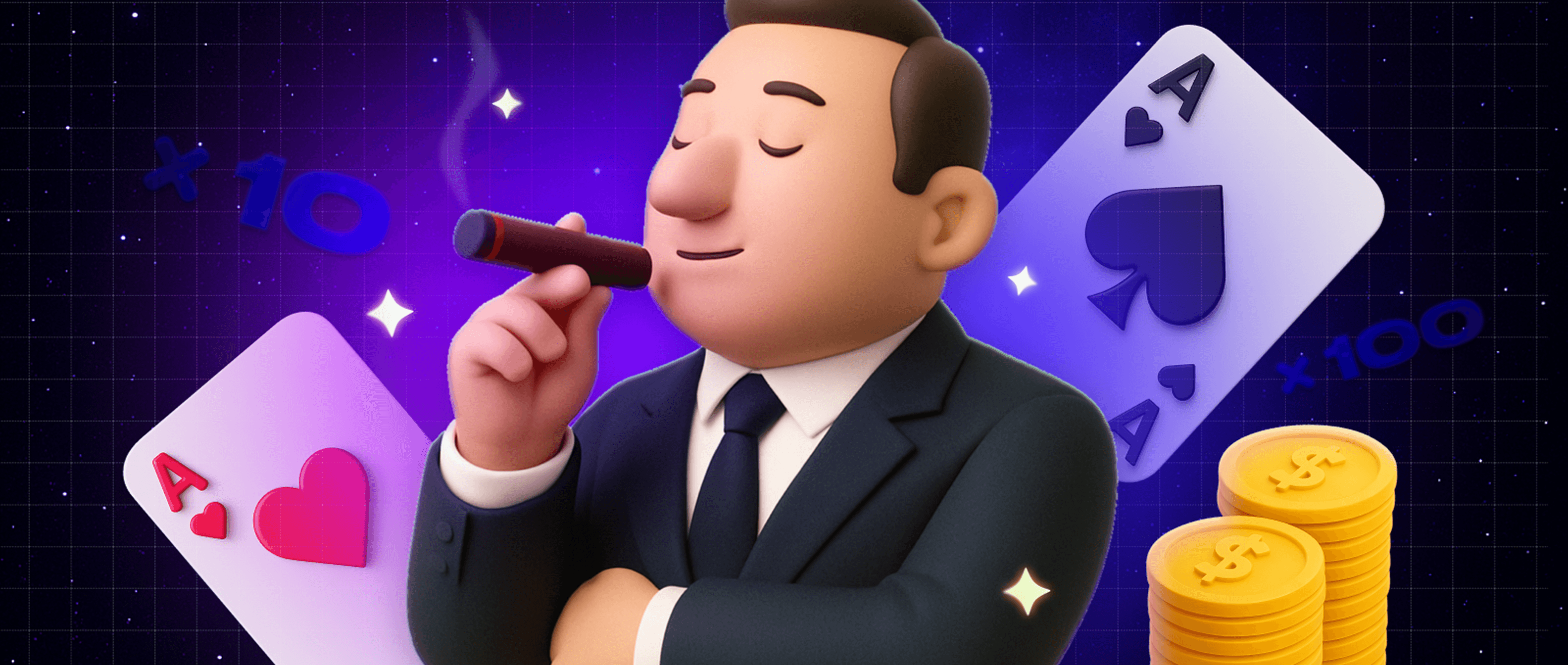
High Roller
High Roller — is a player who regularly stakes large amounts in a casino, on slots, tables, or live games. This VIP-level gambler generates high turnover, qualifies for premium comps, tailored limits, faster withdrawals, and dedicated hosts. The term signals higher risk and special treatment based on wagering volume and bankroll.

Understanding High Roller
High Roller meaning in gambling refers to a casino player whose bet size and total action place them in the top tier for value and risk. The High Roller definition usually combines big average stakes, consistent sessions, and substantial deposits or credit lines. Casinos track this to set betting limits, hosts, and VIP rewards, but also to manage exposure and responsible gaming. At 101RTP, we explain where High Roller treatment is worthwhile and offer a Slot Simulator and Bonus Value Score so you can align stakes, games, and bonuses with your bankroll.
Examples of High Roller
Here are typical ways the High Roller term appears in casino play:
- High-limit table player betting $500–$5,000 per hand in blackjack or baccarat, often with personalized limits and a dedicated pit boss.
- High-denomination slot player spinning $25–$100 per credit or max-betting volatile titles to generate big action quickly.
- Online VIP depositing $10,000+, wagering four-figure spins, unlocking bespoke bonuses, faster KYC, and higher withdrawal caps.
- Tournament entrant buying into premium events or re-entering multiple times to leverage a deep bankroll and secure host attention.
FAQs
What is a High Roller in a casino?
A High Roller is a player who consistently wagers large amounts, generating high turnover and qualifying for VIP treatment like higher limits, faster payouts, and bespoke bonuses. It’s about sustained betting volume, not one lucky session. On 101RTP, you can compare reputable casinos that clearly outline high-limit policies and perks.
How do casinos determine the High Roller definition?
Casinos apply a flexible High Roller definition based on average bet size, total turnover, deposit or credit lines, game selection, and frequency of play. Thresholds vary by brand and region. Hosts review your recent activity, then assign limits, comps, and risk monitoring that match your bankroll and responsible-gaming profile.
Can being a High Roller improve bonus offers?
Yes, High Rollers often receive tailored bonuses, higher cashback, and looser withdrawal caps. However, wagering requirements and game restrictions still apply. Casinos may exclude low-edge games from bonus play or set higher minimum bets. Always weigh expected value and volatility before committing large bankroll segments to promotional play.
Is the High Roller meaning the same online and in land-based casinos?
Broadly, the High Roller meaning is similar: sustained high stakes and turnover. Differences are practical. Online casinos emphasize deposit size, KYC speed, withdrawal ceilings, and bespoke bonuses; land-based venues focus on average bet per hand, table limits, credit markers, and physical comps like suites and travel. Both track risk and loyalty closely.
Do High Rollers always win more money?
No. Larger bets increase variance and speed up bankroll swings. A High Roller can win big faster but also lose faster, and the house edge remains unchanged. Over time, expected results reflect game RTP and volatility, not status. Bankroll management and stop-loss rules matter more than VIP perks.
Why should I understand the High Roller definition before raising stakes?
Understanding the High Roller definition clarifies the risk-cost tradeoff: higher limits and comps versus higher variance and potential loss speed. You need a bankroll many times your average bet, realistic stop rules, and a plan for tilt. This context helps you avoid chasing perks that don’t match your finances.
How can I evaluate if becoming a High Roller suits my bankroll?
Model outcomes before you raise stakes. On 101RTP, use the Slot Simulator to test stake size, bankroll, and volatility, and our Bonus Value Score to see what is realistically beatable under wagering rules. Compare loss rates and session length to your budget, then scale bets conservatively if variance feels acceptable.
